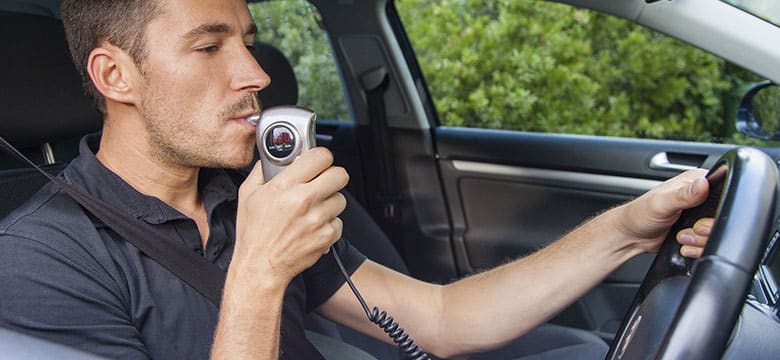Utah Is Lowering Its BAC to .05. Should PA Follow Suit?
Feb 04 2019, by in Criminal Defense, DUI, Legal Blog
On December 30, 2018, the legal blood alcohol content (BAC) for drivers in Utah was lowered from .08 to .05. According to the Center for Disease Control, a 160-pound male would register a BAC of .05 after consuming three drinks within one hour. Under the old BAC limit of 0.08, the same man would have been able to consume four drinks within the same time span. Utah has a history of leading the nation in terms of drunk driving laws, which has sparked debate in other states like PA about what can help discourage drunk drivers.
If you are charged with a Pennsylvania DUI, contact Fienamn Defense right away. Let a Philadelphia DUI lawyer review your situation, come up with a strategy to protect you, and help you resolve the matter as quickly and painlessly as possible. Free consults are available by calling (215) 839-9529 or via our online form.
Utah is First State in the Nation to Lower BAC Levels
In 2013, the National Transportation Safety Board (NTSB) released a report recommending that states reduce their legal BAC limit to .05. The report observed that “more than 100 countries have already established per se BAC limits at or below 0.05.” Countries such as Japan, Austria, and Denmark have lowered their BAC to 0.05. Poland, China, and Sweden went even farther and lowered their BAC to 0.02.
The data suggests that lowering BAC limits reduces the number of drunk driving fatalities. In Australia, for example, the fatal crash risk dropped by 18 percent following the lowering of the legal BAC limit. Most developed countries have lower drunk driving and road fatality rates than the U.S.–in addition to having a lower BAC.
In 2017, almost 11,000 people died in crashes caused by or involving a driver with a BAC of around .08. Although this is the lowest fatality number since the NTSB began recording data in 1982, lowering the BAC could reduce the number of fatalities even further. One often-cited study suggests that the risk of being involved in a fatal crash is around 17 times higher than normal when a driver’s BAC is between .05 and 0.79.
Will Other States Follow Utah’s Lead?
If history is any guide, other states will lower their BAC levels in coming years. Back in 1983, Utah was the first state to lower its legal BAC from 0.10 to 0.08. Within 20 years, every other state had lowered its BAC as well. As each state followed suit, the overall rate of alcohol-related traffic fatalities decreased by 10 percent.
Oregon may be the first state to follow Utah. Their Senate President, Peter Courtney, has introduced a bill that would lower the state’s legal BAC to 0.05. But there is no guarantee the measure will be adopted any time soon. “It’s going to be a struggle,” Courtney told reporters from The Oregonian. “This is a Mount Everest move. It’s doable, but it isn’t going to be easy. I’m going to fight like hell to make it happen.”
One roadblock to lowering BACs is the alcoholic beverage lobby. Jack Shedelbower, a spokesperson for the American Beverage Institute, has been arguing that lowering the BAC will not save lives. Instead, it merely criminalizes otherwise legal and responsible behavior. Shedlebower points out that “Nearly 70 percent of alcohol-related fatalities in this country are caused by someone with a BAC of 0.15 and above,” which is three times the lowered BAC suggested by the NTSB.
There are also policy reasons for resisting a lowering of the BAC., some of which were raised during a last-minute hearing in the Utah legislature to delay lowering the BAC for another year. One issue is the possible strain on the criminal justice system and a likely increase in DUI convictions. Representative Karen Kwan told the committee they “need more time to evaluate the impacts on those people who are cited at .05 to .07.”
Utah Sentencing Commission director Marshall Thompson favored a delay so that they could figure out how to sentence drivers caught within the lower BAC tier. The most telling comment, however, came from Utah Highway Patrol Captain Steve Winward. He told the committee that the law would not significantly impact their activities since the police are “still going to arrest for impairment.” This was a reference to the fact that a DUI arrest and criminal charges are a possibility regardless of a driver’s BAC. Other evidence of impairment may be sufficient to justify a criminal conviction.
Regardless of your BAC, Call Fienman Defense if You’re Charged with DUI
For now, there is no indication that Pennsylvania will change its BAC laws anytime soon. And even if they do, it’s important to remember that you can still get convicted of drunk driving if there is no BAC available, or you have a BAC lower than .08. If the facts and circumstances show that you were incapable of safe vehicle operation after imbibing alcohol or other substances, you can be convicted and sentenced for DUI. This is yet another reason why it’s so important to have experienced and effective legal counsel if you are charged with drunk driving.
Call Fienman Defense today at (215) 839-9529 to learn how you can effectively fight a DUI charge.


